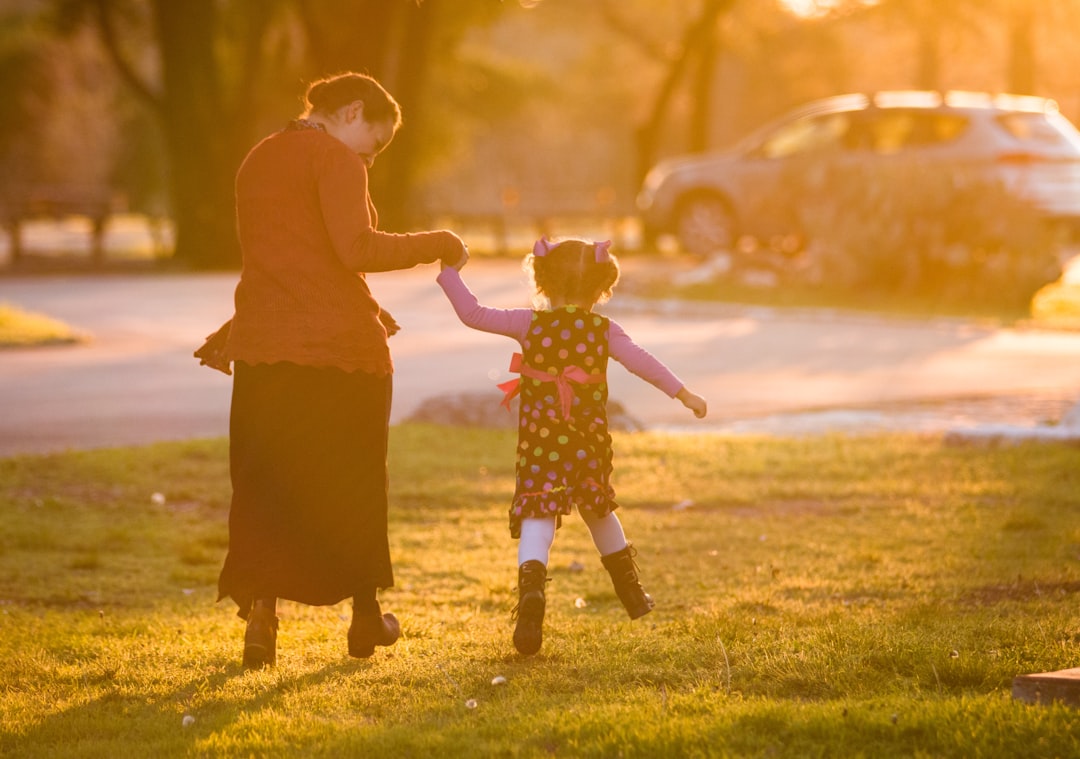One of the hardest conversations any parent will face is talking to their child about death. Whether prompted by the loss of a pet, a grandparent, a neighbor, or even the images kids see in the news, questions about death are inevitable. Children’s understanding of mortality—and their emotional reactions—vary dramatically with age, temperament, and family culture. As a parent, you may feel anxious, sad, or even lost for words. But with gentle guidance and a little preparation, you can help your child navigate these tough realities with honesty and compassion.
Why Honest Conversations About Death Matter
It’s tempting to avoid or soften the subject: parents often want to protect their kids from pain. However, honest, age-appropriate conversations about death aren’t just important—they’re essential for healthy emotional development. Children look to parents for cues on how to process big feelings and challenging realities. Suppressing or avoiding the topic can sometimes lead to confusion, fears, or misconceptions that make it harder to deal with loss and grief in the future.
How Children Understand Death at Different Ages
When you talk to your child about death, it’s helpful to understand how their age shapes their comprehension and emotional response. Here’s how children typically perceive death at various developmental stages:
- Preschoolers (Ages 3-5): See death as reversible or temporary, similar to sleeping. They may repeatedly ask when the deceased will return, and require gentle, clear repetition of information.
- Early Elementary (Ages 6-9): Begin to understand that death is final but may not think it happens to everyone. Magical thinking—believing thoughts or actions cause events—can lead to unnecessary guilt, so be watchful.
- Older Children (Ages 10-12): Typically comprehend that death is permanent and universal. They might have detailed questions or express fear about their own mortality.
- Teens: Grasp death as adults do but may alternate between stoicism and intense emotion. Teens might seek meaning or question beliefs, and benefit from honest, supportive dialogue.
Choosing the Right Moment and Setting
There’s rarely a ‘perfect’ moment to talk about death, but certain guidelines can help:
- Pick a quiet, unrushed environment where your child feels safe and you can engage without distractions.
- Be proactive rather than waiting until you’re overwhelmed by grief—if your family is anticipating a loss, laying groundwork with gentle discussion can help.
- If your conversations are prompted by questions, answer them as soon as you can—children’s imaginations can fill the silence with inaccurate (and often scarier) assumptions.
How to Explain Death: Language That Helps
Use simple, concrete, and honest language. Avoid euphemisms like “gone to sleep” or “passed away,” which can be confusing—or even scary (many children develop sleep anxiety if they associate sleep with death).
- For Young Kids: “When someone dies, their body stops working. They don’t breathe, eat, or feel anymore. Dying means they do not come back.”
- For Older Kids: Provide more detail if asked, but stay factual. “Grandpa’s heart was very sick, and now that it has stopped working, his body cannot live anymore.”
It’s okay to say you don’t know the answer to some of their questions. A gentle “That’s a good question; I wonder about that too” can be reassuring.
Responding to Common Questions Kids Ask About Death
Kids are naturally curious and deeply literal. Be prepared for questions that might feel awkward or strange. Here are some honest, reassuring responses for common inquiries:
- “Will I die? Will you die?”
“Everyone and everything that is alive will die one day. Most people die when they are very old, or if they are very sick. I plan to be with you for a long, long time.” - “What happens after someone dies?”
“No one knows for sure. Some people believe in heaven or that people live on in a different way. Our love and memories of them stay with us.” - “Can it happen to me?”
“It’s very rare for children to die. You are healthy and safe, and I’ll always do my best to take care of you.”
Supporting Grief: Helping Kids Manage Feelings
Children’s reactions to loss are as varied as the losses themselves. Some children cry, some act out, and some seem unaffected. Support your child by:
- Encouraging open expression: Invite them to share feelings through words, art, or play.
- Validating emotions: “It’s okay to feel sad, mad, or confused. I’m here with you, no matter how you feel.”
- Normalizing grief behaviors: Explain that it’s common to feel many things—sometimes all at once.
- Recognizing different grieving styles: Some kids need activity; others need closeness. Let your child lead.
Common Reactions in Children After a Death
Understanding these normal responses can help you support your child more effectively:
- Regression: Younger children may revert to baby talk, bedwetting, or clinginess.
- Testing boundaries: Acting out is sometimes how kids check for security.
- Big mood swings: Expect periods of anger, laughter, or even apparent indifference.
- Curiosity or fixation: Repeated questions or drawings about death can be typical.
- Physical symptoms: Stomachaches or headaches may signal stress or worry.
Practical Ways to Help Kids Process Loss
Parents play a key role in helping children build healthy coping skills. Try these practical ideas and rituals:
- Keep routines consistent to restore a sense of safety and predictability.
- Honor the lost loved one together: Light a candle, create a memory box, frame a favorite photo, or share happy stories.
- Offer choices: Allow your child to decide if they want to attend the funeral or participate in rituals.
- Model self-care: Let your child see you taking care of your own feelings and seeking support.
- Read together: Books like “The Invisible String” by Patrice Karst or “Lifetimes” by Bryan Mellonie help open up conversation.
- Collaborate with caregivers: Communicate with teachers, coaches, and other adults in your child’s life so they can offer extra understanding and support.
Spirituality, Culture, and Family Beliefs
How you talk about death may be deeply rooted in your family’s beliefs and culture. Share your values honestly, explaining that other families may have different ideas.
- If your child asks about religious beliefs: “In our family, we believe that when someone dies…”
- Validate uncertainty: It’s okay to say, “No one really knows for sure, but this is what we hope (or believe) happens.”
When and How to Talk About Funerals, Burials, or Cremation
Children are often afraid or unsure about rituals around death. Here’s how to make it less intimidating:
- Describe what will happen at the funeral or service in simple, concrete terms. “People may be crying, telling stories, or singing.”
- Let your child decide if they want to participate. Don’t force them to view a body if they’re uncomfortable.
- Prepare them for strong emotions, both theirs and others.’
Signs Your Child May Need Additional Support
While most children learn to cope with loss over time, sometimes feelings become overwhelming or long-lasting. Watch for signs that may suggest extra help is needed:
- Persistent changes in sleep or appetite
- Continued withdrawal from friends or favorite activities
- Ongoing sadness, anger, or fear more than two months after the loss
- Physical complaints that don’t resolve
- Talk of wanting to join the deceased or self-harm
In these cases, consider reaching out to your pediatrician, a child psychologist, or a grief counselor experienced with children.
Frequently Asked Questions: Parenting Kids Through Loss
Should I cry in front of my child?
Yes—children benefit from seeing that sadness is normal and that it’s safe to express grief. Explain your feelings simply (“I’m sad because I miss Grandma”). This models healthy emotional expression and helps your child feel less alone.
What if my child doesn’t want to talk about death?
That’s okay—some kids need space or process feelings through drawing, play, or writing instead. Let them know you’re available whenever they want to talk.
Should children attend funerals or memorials?
It depends on the child’s age, temperament, and preferences. Offer honest information about what to expect, allow them to ask questions, and let them opt in or out as they feel comfortable.
How can I answer questions about violence or scary accidents?
Be honest but brief and age-appropriate. “Sometimes accidents happen and someone’s body can’t heal. It’s very sad, and people work hard to keep us safe.”
Tips for Parenting Grieving Children (At a Glance)
- Keep explanations simple, concrete, and honest
- Repeat information—kids need reassurance and clarity
- Validate all feelings, even laughter or anger
- Stick to routines for safety and predictability
- Model healthy coping by talking about your feelings and seeking support
- Use books and activities as conversation starters
- Encourage creative expression through art, stories, or music
Resources for Parents: Books and Support
- Books for Young Kids:
- “The Invisible String” by Patrice Karst
- “Lifetimes: The Beautiful Way to Explain Death to Children” by Bryan Mellonie and Robert Ingpen
- “When Dinosaurs Die: A Guide to Understanding Death” by Laurie Krasny Brown
- Books for Older Kids:
- “The Memory Box: A Book About Grief” by Joanna Rowland
- For Parents:
- “Parenting Through Grief” by Phyllis R. Silverman
- Websites:
- The Dougy Center (www.dougy.org)
- The National Alliance for Children’s Grief (www.childrengrieve.org)
Conclusion: Parenting Through Loss With Gentleness and Honesty
Talking to children about death isn’t about finding the perfect words; it’s about showing up with honesty, warmth, and presence. By answering their questions directly, normalizing their emotions, and providing a safe space for all kinds of feelings, you help lay the foundation for resilience and emotional wellness—both now and in the years ahead.
Remember, you don’t have to do it alone. Reach out for support and remember: the most important thing your child needs is your steady love and gentle guidance as they navigate life’s hardest moments.




